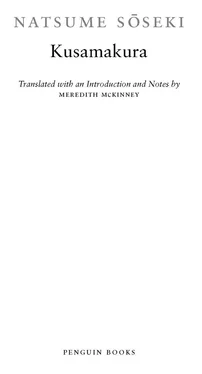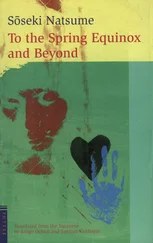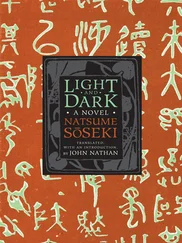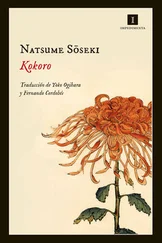Natsume Soseki - Kusamakura
Здесь есть возможность читать онлайн «Natsume Soseki - Kusamakura» весь текст электронной книги совершенно бесплатно (целиком полную версию без сокращений). В некоторых случаях можно слушать аудио, скачать через торрент в формате fb2 и присутствует краткое содержание. Жанр: Старинная литература, на английском языке. Описание произведения, (предисловие) а так же отзывы посетителей доступны на портале библиотеки ЛибКат.
- Название:Kusamakura
- Автор:
- Жанр:
- Год:неизвестен
- ISBN:нет данных
- Рейтинг книги:4 / 5. Голосов: 1
-
Избранное:Добавить в избранное
- Отзывы:
-
Ваша оценка:
- 80
- 1
- 2
- 3
- 4
- 5
Kusamakura: краткое содержание, описание и аннотация
Предлагаем к чтению аннотацию, описание, краткое содержание или предисловие (зависит от того, что написал сам автор книги «Kusamakura»). Если вы не нашли необходимую информацию о книге — напишите в комментариях, мы постараемся отыскать её.
Kusamakura — читать онлайн бесплатно полную книгу (весь текст) целиком
Ниже представлен текст книги, разбитый по страницам. Система сохранения места последней прочитанной страницы, позволяет с удобством читать онлайн бесплатно книгу «Kusamakura», без необходимости каждый раз заново искать на чём Вы остановились. Поставьте закладку, и сможете в любой момент перейти на страницу, на которой закончили чтение.
Интервал:
Закладка:
“Not a bit of it. He gave me a pat on the back.â€
“Pat on the back because you went off on an errand and managed to pul out a fish while you were at it, huh?â€
“He said he was pleased I’d given myself such a good time; it goes to show I’m wiser than my years.â€
“No wonder yer head’s al swel ed up like that. Just look at those lumps. Dreadful business to shave such a badly behaved noggin. Wel , I’l let you off this time. But you just mold it into better shape before you bring it here again.â€
“If I have to remold it to suit you, it’s easier to take it to a better barber.â€
The barber laughs. “Head’s shaped funny, but you sure got a quick tongue.â€
“As for you, your hands are hopeless at shaving, but they sure know how to lift a sake cup.â€
“Whaddya mean ‘hopeless at shaving,’ goddamn you!â€
“I didn’t say it, the abbot did. No need to lose your cool. Come on now, act your age.â€
“Hrrmph. No joke—isn’t that right, mister?â€
“What?â€
“These priest types, they al live the easy life perched up there in their temples. No wonder their tongues get so quick off the mark. Even this young fel er, he’s forever shootin’ his mouth off—oops, head to the side a bit—to the side, I said, dammit—I’l give ya a cut if ya don’t do as yer told, got that? There’l be blood, I’m warnin’ ya.â€
“Hey, that hurts! Don’t be so rough!â€
“This is nothin’. How ya goin’ to be a priest if ya can’t put up with a bit of pain, huh?â€
“I’m already a priest.â€
“Yer not the real thing yet. Speakin’ of which, why did that Taian die? Tel me.â€
“But Taian’s not dead.â€
“Not dead? Fancy that. I was sure he died.â€
“He turned over a new leaf after al that happened, and he went off to Daibaiji temple up in Rikuzen, to throw himself into his practice.
He’l have reached enlightenment by now, I should think. It’s a fine thing.â€
“What’s fine about it? Never heard of no Buddhist teaching that says it’s fine to do a flit like he did. You just look out, ya hear me?
Don’t you go makin’ a fool of yerself with a woman. Speakin’ of women, that loony goes visiting the abbot, does she?â€
“I haven’t heard of any loony woman.â€
“Get it through that thick bald skul , come on. Does she go or doesn’t she?â€
“No loony goes to visit, but Shioda’s daughter certainly does.â€
“The abbot can pray al he likes, there’s no curin’ that one. That ex-husband of hers has cursed her.â€
“She’s a fine woman. The abbot has a lot of praise for her.â€
“Wel , it beats me. Everything’s topsy-turvy once you’re up in that temple of yours. Whatever he says, a loony’s a loony—right, that’s yer head done. Off you go quick smart, and get yerself a scolding from the abbot.â€
“No, I’d rather take my time about it and get a pat on the back instead.â€
“Do as you like, you impudent twerp.â€
“Pah! You’re a shit-ass!â€
“What did you say?â€
But the freshly shaved head has already ducked through the shop curtains and is out in the spring breeze.
CHAPTER 6
It is evening. I settle at the desk, al the doors opened wide.
Not only are there few people in this inn, but the building itself is relatively spacious, so that here in my room, separated as it is by winding corridors from the realm of human intercourse where those few dwel , not a sound comes to disturb my contemplations. And today al is quieter stil .
The master of the house, his daughter, and the male and female servants seem to have al departed and left me here alone—departed not to some ordinary place but to the land of mists perhaps, or to the realm of clouds. Or perhaps cloud and water have moved closer, so that their little boat drifts unawares upon a sea so calm that the hand is too languid to reach for the til er, then floats off and away until the white sail seems to become one with water and cloud, until at last even the sail itself must scarcely know how it might differ from them—perhaps it is to this distant realm that they have al departed. Or perhaps they have suddenly disappeared into the depths of the spring, their mortal bodies now transformed to spirit mists there in the vast reaches between heaven and earth, too insubstantial to be visible any longer even to the microscope’s powerful eye. Or they have become skylarks, singing al day the delights of the mustard blossom’s gold, and now, as the light fades, soaring to where the evening’s deep violet trails its hues. Or perhaps as gadflies they have lengthened the long day with their labors, failing at the last to sip from the last flower’s center its sweet accumulated dew, and now they sleep a scented sleep, pil owed beneath some tumbled camel ia blossom.
Whatever may be the case, it certainly is quiet.
The spring breeze that wafts emptily through the vacant house comes neither to gratify those who welcome it nor to spite those who would bar it.
No, it is the spirit of the impartial universe, which comes of its own whim, and of its own whim departs again. Were my heart, as I sit here, chin cupped in propped palm, as empty as the room around me, the spring breeze would surely blow unbidden clean through it as wel .
Knowing that it is the earth that we tread, we learn to tread careful y, lest it be rent open. Realizing that it is the heavens that hang above us, we come to fear the echoing thunderbolt. The world demands that we battle with others for the sake of our own reputation, and so we undergo the sufferings bred of il usion. While we live in this world with its daily business, forced to walk the tightrope of profit and loss, true love is an empty thing, and the wealth before our eyes mere dust. The reputation we grasp at, the glory that we seize, is surely like the honey that the cunning bee wil seem sweetly to brew only to leave his sting within it as he flies. What we cal pleasure in fact contains al suffering, since it arises from attachment.
Only thanks to the existence of the poet and the painter are we able to imbibe the essence of this dualistic world, to taste the purity of its very bones and marrow. The artist feasts on mists, he sips the dew, appraising this hue and assessing that, and he does not lament the moment of death. The delight of artists lies not in attachment to objects but in taking the object into the self, becoming one with it. Once he has become the object, no space can be found on this vast earth of ours where he might stand firmly as himself. He has cast off the dust of the sul ied self and become a traveler clad in tattered robes, drinking down the infinities of pure mountain winds.
It’s not because I wish to put on superior airs to browbeat those who are tainted with the marketplace that I thus strive to imagine this realm.
My only intention is to tel the happy news of the salvation that lies there and to beckon those who have ears to hear. The fact of the matter is that the realms of poetry and art are already amply present in each one of us. Our years may pass unheeded until we find ourselves in groaning decrepitude, but when we turn to recol ect our life and enumerate the vicissitudes of our history and experience, then surely we wil be able to cal up with delight some moment when we have forgotten our sul ied selves, a moment that lingers stil , just as even a rotting corpse wil yet emit a faint glow. Anyone who cannot do so cannot cal his life worth living.
Читать дальшеИнтервал:
Закладка:
Похожие книги на «Kusamakura»
Представляем Вашему вниманию похожие книги на «Kusamakura» списком для выбора. Мы отобрали схожую по названию и смыслу литературу в надежде предоставить читателям больше вариантов отыскать новые, интересные, ещё непрочитанные произведения.
Обсуждение, отзывы о книге «Kusamakura» и просто собственные мнения читателей. Оставьте ваши комментарии, напишите, что Вы думаете о произведении, его смысле или главных героях. Укажите что конкретно понравилось, а что нет, и почему Вы так считаете.












